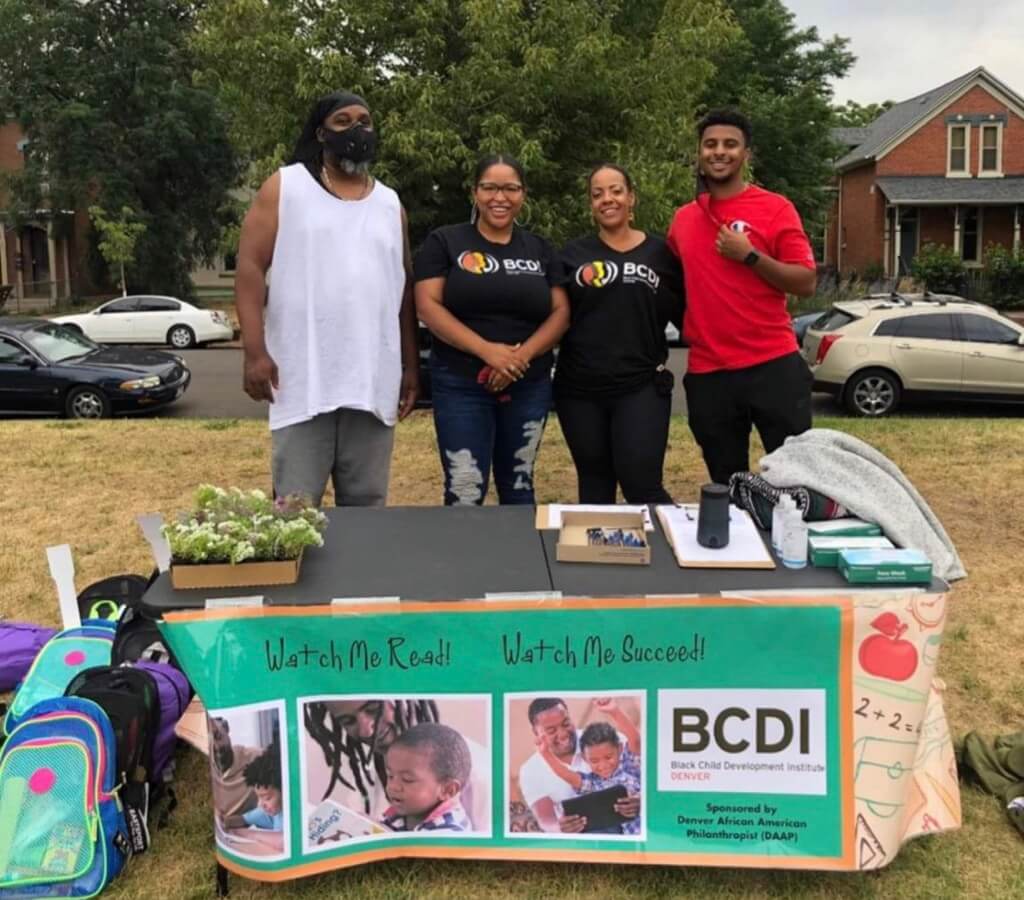Photo credit: Black Child Development Institute – Denver Chapter, a Rose Community Foundation grant recipient.
This has been a year of extraordinary needs and converging crises facing our region, and Rose Community Foundation is grateful to be able respond to this moment in manners consistent with our values, vision and long-term strategies. As a community foundation, we exist to support nonprofits that are providing critical services and to partner with generous donors in addressing these demands.
This year, rather than asking for an unrestricted gift to support Rose Community Foundation’s work, we are inviting you to join us in our response to immediate community needs. Our collective philanthropic reach and impact is maximized when we leverage our shared resources. This moment calls on us all to do more, and we need your support.
In our new strategic plan—launched in January—Rose Community Foundation committed to listening, learning and directing our philanthropy to advance equity, justice and inclusion. Little did we know how urgent that mission would be as our community faced the devastating health and economic impacts of COVID-19, simultaneously exacerbating existing disparities, increasing the need for services, and decreasing nonprofits’ funding streams. At the same time, national tragedies cast long-standing racial injustices into stark relief, heightening the momentum for dialogue and change.
In response to these ongoing crises and opportunities, Rose Community Foundation has increased our 2020 grantmaking budget, but the community needs continue to outpace available resources. Together, we can do so much more for our community, so we are asking for your partnership through a gift to one or more of the following pooled funds:
COVID-19 R.E.S.P.O.N.D. FUND
Support our ongoing, equity-focused response to the health, economic and social impacts of COVID-19. Contributions will fund grants to local organizations serving people and communities most significantly and disproportionately affected by the
pandemic. Grantmaking to date has prioritized older adults, immigrants,
communities of color, women, remote learners, and people who are medically
vulnerable, economically displaced, experiencing homelessness or housing or food insecurity, or domestically at-risk.
COMMUNITY ACTION FUND | RACIAL JUSTICE
Support efforts to advance racial justice in the Greater Denver region. Contributions will fund grants to grassroots organizations in communities of color working to address systemic inequities by creating opportunity, bolstering resilience and empowerment, growing awareness and understanding, and building just and inclusive systems, policies and communities.
FUND FOR JEWISH NONPROFIT RESILIENCY
Support local Jewish nonprofits in adapting and responding to the organizational impacts of COVID-19. Contributions will fund grantmaking to bolster Jewish organizations’ financial health and will also support needs identified by the organizations themselves, including technical assistance grants, cohort-based learning and workshops, marketing and storytelling support, and diversity, equity and inclusion training.
If these issues resonate for you, we hope you will join us in this work. All dollars will be deployed quickly and strategically into the community.
We value your partnership in advancing the vision of a thriving region strengthened by its diversity and generosity. Best wishes to you and your family for a peaceful and
healthy holiday season.

